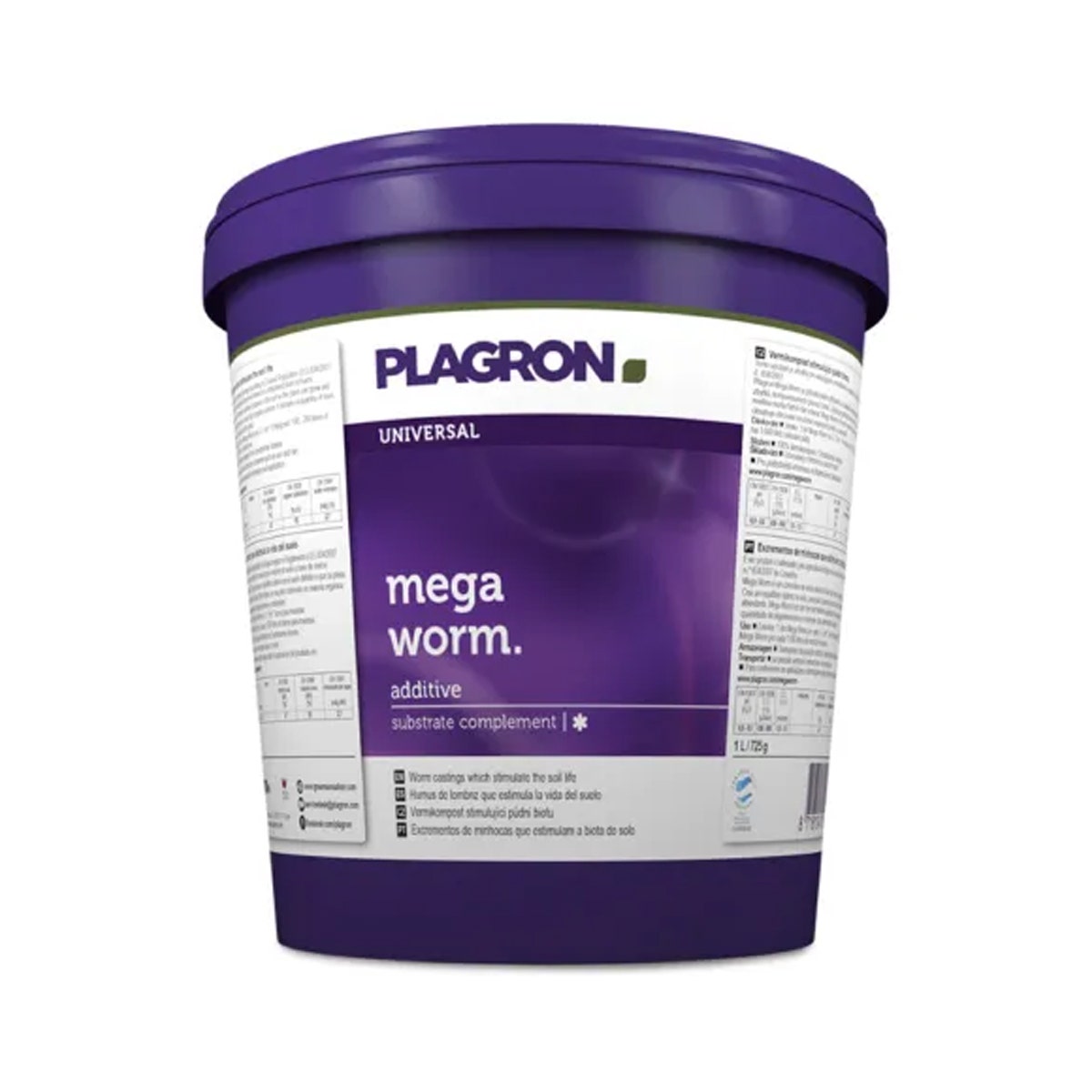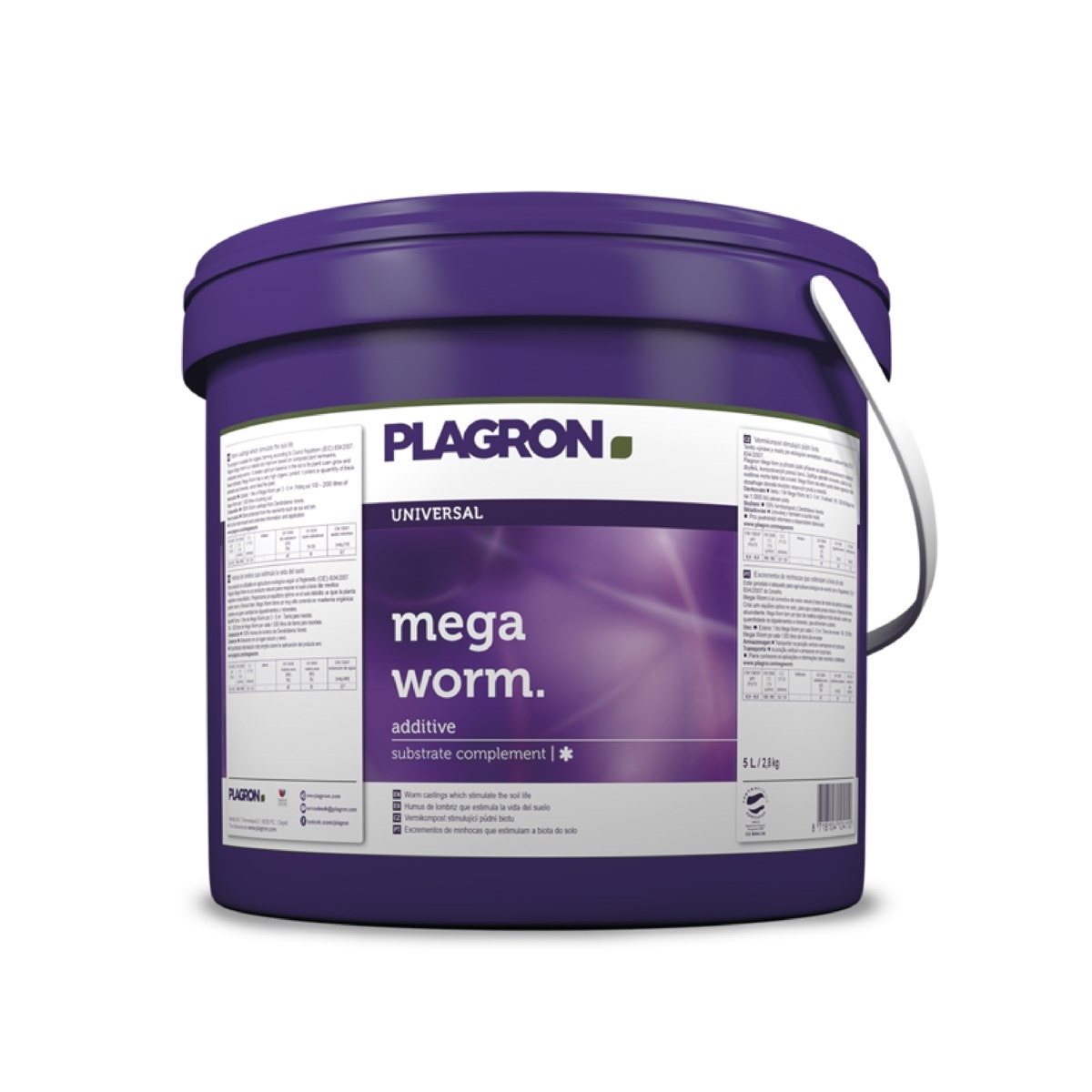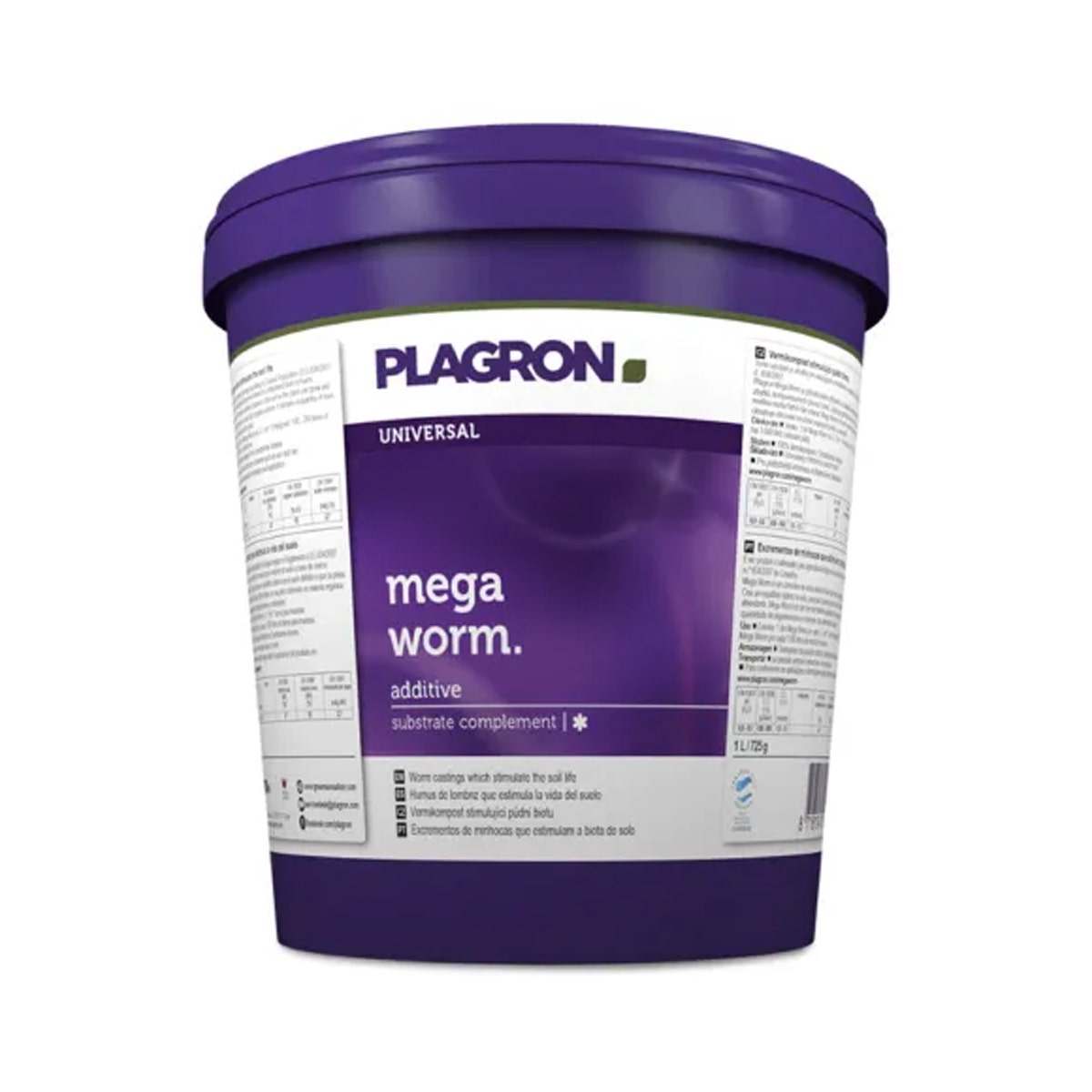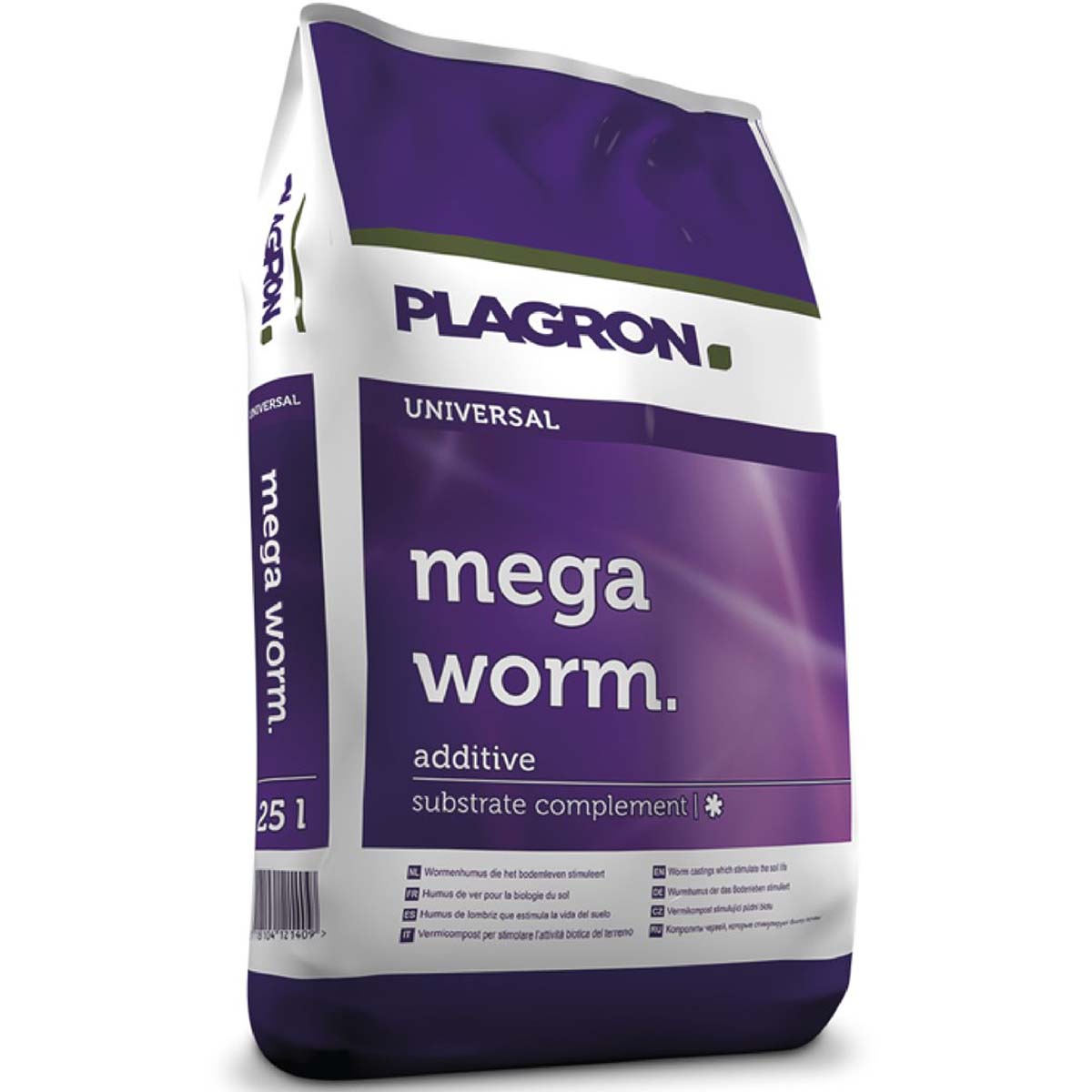Plagron Nutrients Mega Worm - Natural Soil Improver
Worm castings (the droppings of earthworms) are an excellent organic source of slow-release nutrients, humic acid and beneficial microbes. They come with an array of benefits, improving soil structure, reducing compaction and improving water retention and drainage.
Worm castings also contain enzymes like chitinase, which wards off insects, while stimulating further production of chitinase producing bacteria. Chitin is the compound that makes up most of insects' exoskeletons. Chitinase breaks down chitin (converting it to chitosan), making it highly dangerous to insects, which is why they avoid going anywhere near it. The beauty of this process is that the end-product, chitosan, is extremely beneficial in its own right, acting as a kind of natural growth regulator that pushes plants to new levels.
Worms produce castings at a rate of about a third of their body weight per day, so a healthy population of worms can have a significant impact on the fertility of your soil. Most growers, however, don't have worms living in their substrate... If you want to experience the benefits for yourself, then Mega Worm is what you need.
Plagron Mega Worm is an organic soil improver which is based on decomposed plant remains, composted using worms. It delivers all of the above-mentioned benefits, and contains lots of mycorrhizal fungi and trichoderma, which work to fortify the rootzone, increasing the surface area of roots, for better nutrient uptake, and warding off pathogens, as well as perfroming an array of other roles.
Visit the Plagron Nutrients category to see the complete range.
Contains
Choose from 1 litre, 5 litre and 25 litre sizes using the dropdown menu.
About
- A great slow-release soil additive
- Loaded with macronutrients, micronutrients and trace minerals
- Contains mycorrhizal fungi and trichoderma to boost root health
- Wards off insects via the activity of chitinase
- Fully organic and CU certified for peace of mind
How To Use
Add Mega Worm at a rate of 10 - 20 litres per 100 litres of potting soil.



